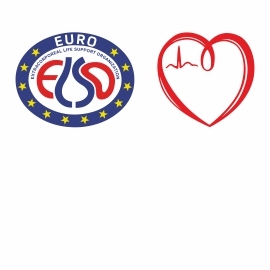ECPR Prague School
”Let´s find an effective way to treat refractory out-of-hospital cardiac arrest”
Dear friends and colleagues,
extracorporeal life support therapies have attracted a lot of attention in past couple years. Severe COVID-19 related ARDS treated with extracorporeal membrane oxygenation became a standard of care. ECMO is widely available and with disappearing pandemics new challenges reappeared. Refractory out-of-hospital cardiac arrest (r-OHCA) being definitely one of them. Efforts to decrease high mortality in r-OHCA victims still remain unachieved.
Within this therapeutic area, two randomized controlled trials have been published by our teams. The ARREST was the first, released in 2020, randomized 30 patients and suggested pure benefit in patients treated by ECPR (extracorporeal cardiopulmonary resuscitation). Prague OHCA study was second, published in 2022, randomized 256 patients and without proving benefit for “invasive” approach in its primary outcome, has shown favorable outcome in prolonged r-OHCAs treated in a well functionating system of prehospital emergency care followed by immediate advanced care in a high-volume cardiac center.
What are the consequences of these two trials?
Should ECPR become a standard of care?
Should patients with r-OHCA be transported to cardiac centers under ongoing CPR?
Where and how should ECPR patients be cannulated? In the emergency room, in the cathlab or on-site? Percutaneously, surgically, or hybrid?
Is there a difference in neuroprognostication after ECPR?
Many questions and issues have arisen inspiring us to organize a focused ECPR meeting. All above and many other topics will be covered in Prague, Oct 27-28, 2022.
This meeting has been endorsed by a newly established ECPR Working Group on ECPR within the EuroELSO, a scientific society completely devoted to development of extracorporeal therapies.
We invite you cordially to attend the meeting and share experiences, visions and plans together.
Yours,
Jan Bělohlávek
| Demetris Yannopoulos
|



